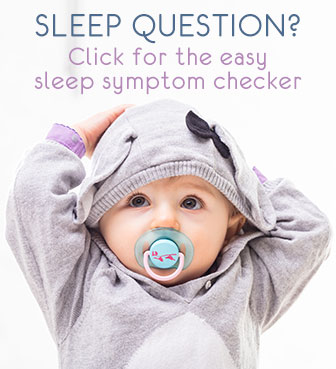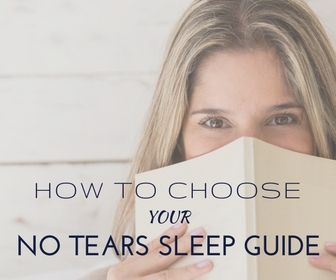Co-Sleeping Benefits ... and the Downside
Author Name: Heidi Holvoet, PhD
Co-sleeping can be such a wonderful experience. When done safely, which is absolutely critical, it can also actually help you and your baby sleep more, protect your baby,
make night feeds easier and improves bonding. But for completeness let's look at some downsides too.
Disclaimer: Unsafe co-sleeping can kill your baby. The author(s) of this article are not responsible for your child's safety: applying these guidelines properly and appropriately for your unique situation, and ensuring your baby's safety is your own responsibility (
full disclaimer
).
Refer to healthychildren.org for the
AAP Safe Sleeping Policy
by Pediatricians of the AAP.
You may be a convinced co
sleeper. Or, if you are like me and
so many other parents, you have probably
ended up
with baby
in your bed every now and then.
You know, when after the
so
manieth
night feeding your baby refuses to go back to sleep for hours, and just
cries.
Desperate, feeling guilty, you put her next to you in bed and
... she dozes off so peacefully. That is
the power of co sleeping
:
your baby feels safe and secure and that works like a magic sleep
potion.
--- Remember, this
occasional
co sleeping is fine, and it can be a real life saver to get at least
some sleep but please, please make sure to take apply
co-sleeping safety precautions
, even if you only take your baby in your bed just once every now and then!
---
--- If you're
worried to
install bad habits
, check the
cosleeping downsides
below ---
Co Sleeping Benefits
Regularly sharing the family bed with your baby has interesting advantages for both you and your baby:
- Baby sleeps better : all babies sleep better when they feel safe and secure. Especially in those first months, your presence is all the reassurance she needs to become confident at sleeping.
- Baby may be protected by your presence : in those first months, your presence when baby sleeps is a top protector in the battle against SIDS, or cot death. SIDS studies show that your presence somehow helps regulate baby's breathing and heart rate. And it allows you to react (instinctively) when something goes wrong. See preventing SIDS guidelines for more on avoiding SIDS. This is valid both when using a sidecar cosleeper crib or a standalone crib in your room.
- Parents sleep better : most parents - even many not so keen on the family bed - sleep better with their baby near: it feels secure to feel and hear baby close by (without having to get up and go check 10s of times each night). A cosleeper crib takes away the worries some have with having baby in their bed.
- No-fuss night feeds : when breast feeding : just draw baby closer to feed, then gently shift her back. This disturbs both her and your sleep the least (as opposed to getting up, going to the crib, getting out of the crib, off to feed, back in the crib, ... waking you all up completely), also when bottle feeding .
- Bonding with baby : being so close to your baby when sleeping & waking at night is a great way to improve bonding.
- Breastfeeding : co sleeping often makes it easier to keep breastfeeding, which again benefits both you and your baby.
To get started: have a look at my Cosleepers Guide .
Co Sleeping Downsides
Sharing the family bed can be lovely, yes. But I still think it's important to have a look at some downsides too. Because it doesn't work out for everyone. And it does not make sense to rave about how great something is, without also thinking of what could be less great. That will help you make your own best choice.
- Safety hazards : if cosleeping is not done safely, there is a risk for your baby to die - when you roll on top of her or she gets covered under the blankets.
- Restless sleep for baby : some babies - especially from 4-6 months onwards, are very lightly awakened by their parent's movements.
- Restless sleep for you : you may not sleep so comfortably or deeply with baby near you.
- Difficult transition to crib : at some point, your baby or toddler cosleeping will need to transition to his own bed. This can be difficult.
- Parental privacy : as a couple, you and your partner may feel you lose too much of your privacy and intimacy when sharing your bed with your child(ren).
The two main worries I hear from parents are the safety and transition (
bad habit
) ones.
The safety issue can be dealt with but remains extremely important to keep in mind (sorry if I say
it again and again but it's important!):
when you co sleep, always
follow all
co-sleeping safety guidelines
.
Safety will always remain a concern when co-sleeping and that's why a
cosleeper
bedside crib
will likely be your ideal solution.
About the
'bad
habit'
: it's true that some babies, and toddlers, and to be truthful, their parents, will
love sleeping in your family bed SO much, that transitioning to their
own crib or bed, while never impossible, can take a while at a later age. That's why, if you decide to cosleep
regularly, both you and your partner must be convinced 100%. So that if
transitioning takes a bit longer than you first thought, you won't not
mind too much.
Also, most babies actually transition quite easily under 1 year old.
Later on, towards toddler hood it is a good exercise in 'learning to
accept rules'. With your gentle guidance, your child can then learn to
sleep in his own ('big kid') bed, when you feel the time is right.
Again a
cosleeper
can help by getting your baby used to being in her own crib, while
still next to you.
Whether you co sleep or not is a very very personal choice. It can be
an absolute
no-no!
for some, and a
of
course!
for others. And you can plan enthusiastically
before baby is born, only to find yourself doing the exact opposite
once they're.
Both are good options, as long as you
do what feels best for you and your family, and make sure it's 100% safe at all times. Never hesitate to
discuss with me if you're unsure.
Article Author: Heidi Holvoet, PhD - Founder, senior sleep consultant

Heidi Holvoet, PhD, is the founder of the Baby Sleep Advice website and movement, an award-winning author, baby & toddler sleep consultant with 17+ years experience as well as a certified lactation counselor.
Over the years, Heidi has received several awards inluding a Mom's Choice Award (MCA) and National Parenting Awards (NAPPA) for her Baby Sleep Advice website, programs and books. Also, Baby Sleep Advice was awarded "Most Trusted Infant's Sleep Solutions Company 2023" in the Benelux Enterprise Awards 2023.
Heidi continually conducts personal research and participates in continued education and in that way stays up to date with current scientific and pyschosocial infant care.
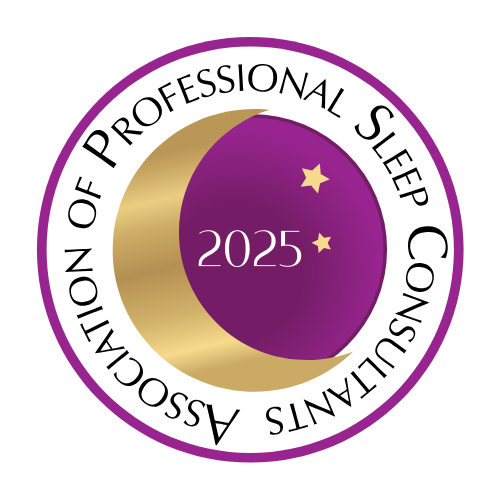
She is also a member of the Association of Professional Sleep Consultants of which she was one of the earliest contributors. She obtained her PhD degree in physics at the University of Ghent in Belgium.
Heidi is passionate about helping babies and their parents sleep more and better, with her trademark holistic and truly-no-tears approach that has been proven and praised time and again by parents worldwide to be effective and truly no-tears. Respect for you as a parent and your baby, is at the heart of Heidi's warm and kind support. Her approach always keeps in mind a baby's needs and abilities at any given age, is based on pediatric science and the most up to date knowledge in infant care and sleep science.
As well as the award-winning baby sleep programs, Heidi offers popular 1:1 consults and easy-access 30-minute SOS Sleep sessions.
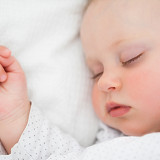
Self Soothing
by Heidi Holvoet, PhD
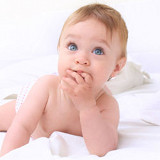
What to do when your baby wakes every hour
by Heidi Holvoet, PhD
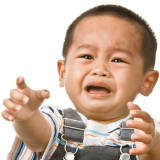
Separation Anxiety
by Heidi Holvoet, PhD
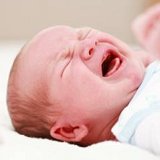
Colic
by Heidi Holvoet, PhD

Why does my baby wake up every hour?
by Heidi Holvoet, PhD

